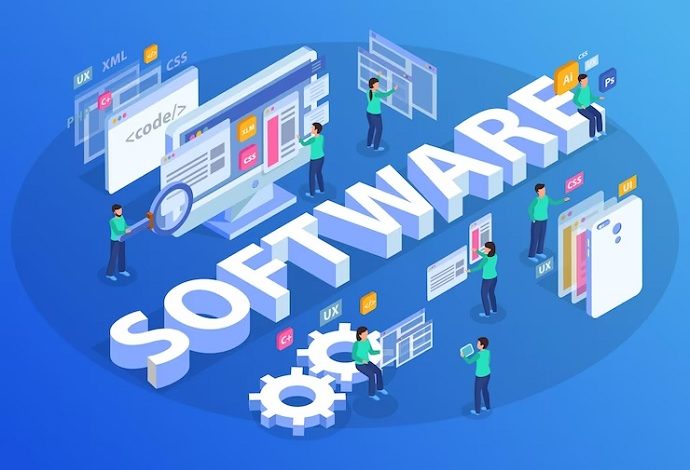
Asset Management Software is a digital solution designed to help businesses keep tabs on their assets throughout their lifecycle. Assets, in this context, can range from physical items like machinery and equipment to intangible assets like software licenses and contracts. The primary goal of Asset Management Software is to enhance efficiency, reduce costs, and mitigate risks associated with asset management.
Asset Management Software Pros
Centralized Asset Tracking
Highlight: Asset Management Software provides a centralized platform for tracking all assets in one place, eliminating the need for manual spreadsheets or disparate systems.
Benefit: Businesses can easily locate and monitor their assets, leading to improved accountability and reduced chances of loss or theft.
Optimized Asset Utilization
Highlight: With real-time insights into asset usage patterns, businesses can optimize their asset utilization, ensuring that each item is used to its maximum potential.
Benefit: This leads to cost savings and better return on investment as underutilized assets can be identified and either repurposed or retired.
Risk Management
Highlight: Asset Management Software helps in tracking asset maintenance schedules, reducing the risk of unexpected breakdowns and downtime.
Benefit: By addressing potential issues proactively, businesses can minimize operational disruptions and avoid costly repairs.
Compliance and Reporting
Highlight: The software assists in maintaining compliance with industry regulations and standards through automated tracking and reporting features.
Benefit: This ensures that businesses stay in line with legal requirements, avoiding penalties and reputational damage.
Cost Savings
Highlight: Through optimized asset utilization, reduced downtime, and efficient maintenance, businesses can achieve significant cost savings.
Benefit: Asset Management Software helps in identifying cost-effective strategies, contributing to overall financial health.
Asset Management Software Cons
Initial Implementation Costs
Highlight: Implementing Asset Management Software requires an upfront investment in software licenses, training, and integration.
Drawback: Small businesses may find the initial costs prohibitive, and it might take some time to realize a return on investment.
Learning Curve
Highlight: Employees might face a learning curve when adapting to a new software system.
Drawback: This can temporarily impact productivity until users become familiar with the software, necessitating proper training.
Data Security Concerns
Highlight: Storing sensitive asset data digitally may raise concerns about data security.
Drawback: Businesses must implement robust cybersecurity measures to protect their asset information from unauthorized access or cyber threats.
Customization Challenges
Highlight: Some Asset Management Software may have limitations in terms of customization to fit unique business processes.
Drawback: Businesses with highly specific requirements might need to compromise or invest in more advanced, often pricier, solutions.
Dependency on Technology
Highlight: Asset Management Software relies on technology infrastructure, and technical issues can potentially disrupt asset management processes.
Drawback: Businesses need to ensure a stable IT environment and have contingency plans in place for unforeseen technical issues.
Frequently Asked Questions
What software is used for asset management?
Asset Management Software is specifically designed to help businesses track, organize, and optimize their assets throughout their lifecycle. It provides a centralized digital platform for efficient asset monitoring, allowing businesses to streamline processes related to asset utilization, maintenance, and compliance. This software is instrumental in enhancing overall operational efficiency, reducing costs, and mitigating risks associated with managing diverse types of assets.
How does asset management software help in audits?
Asset Management Software simplifies audits by providing a centralized and organized repository of all assets, enabling auditors to easily access and review pertinent information. It automates the tracking of asset changes, ensuring accurate and up-to-date records, reducing the likelihood of errors during audits. The software’s reporting capabilities allow auditors to generate comprehensive reports swiftly, facilitating a more efficient and thorough audit process.
What is the most commonly used asset management tool across enterprises?
The most commonly used asset management tool across enterprises is often considered to be the Enterprise Asset Management (EAM) software. EAM systems, such as IBM Maximo, SAP EAM, or Infor EAM, are widely adopted for their comprehensive features, allowing organizations to manage the entire lifecycle of physical and digital assets efficiently. These tools offer functionalities like asset tracking, maintenance planning, and compliance management, making them indispensable for large-scale businesses in various industries.
Conclusion
Asset Management Software is a valuable tool for businesses looking to streamline their asset management processes and drive efficiency. While it comes with certain challenges, the benefits in terms of cost savings, risk management, and compliance adherence are substantial.
Choosing the right software that aligns with the unique needs of the business is crucial for unlocking the full potential of asset management in the digital age. By embracing this technology, businesses can navigate the complexities of asset management with ease and position themselves for sustained growth and success.
Photo Credit: https://www.freepik.com/free-vector/web-development-isometric-concept-composition-illustration_13805027.htm








DISCLAIMER: The information provided on InvestmentTotal.com is for general informational purposes only. The content on this website is not intended to be, and should not be construed as, professional financial advice.